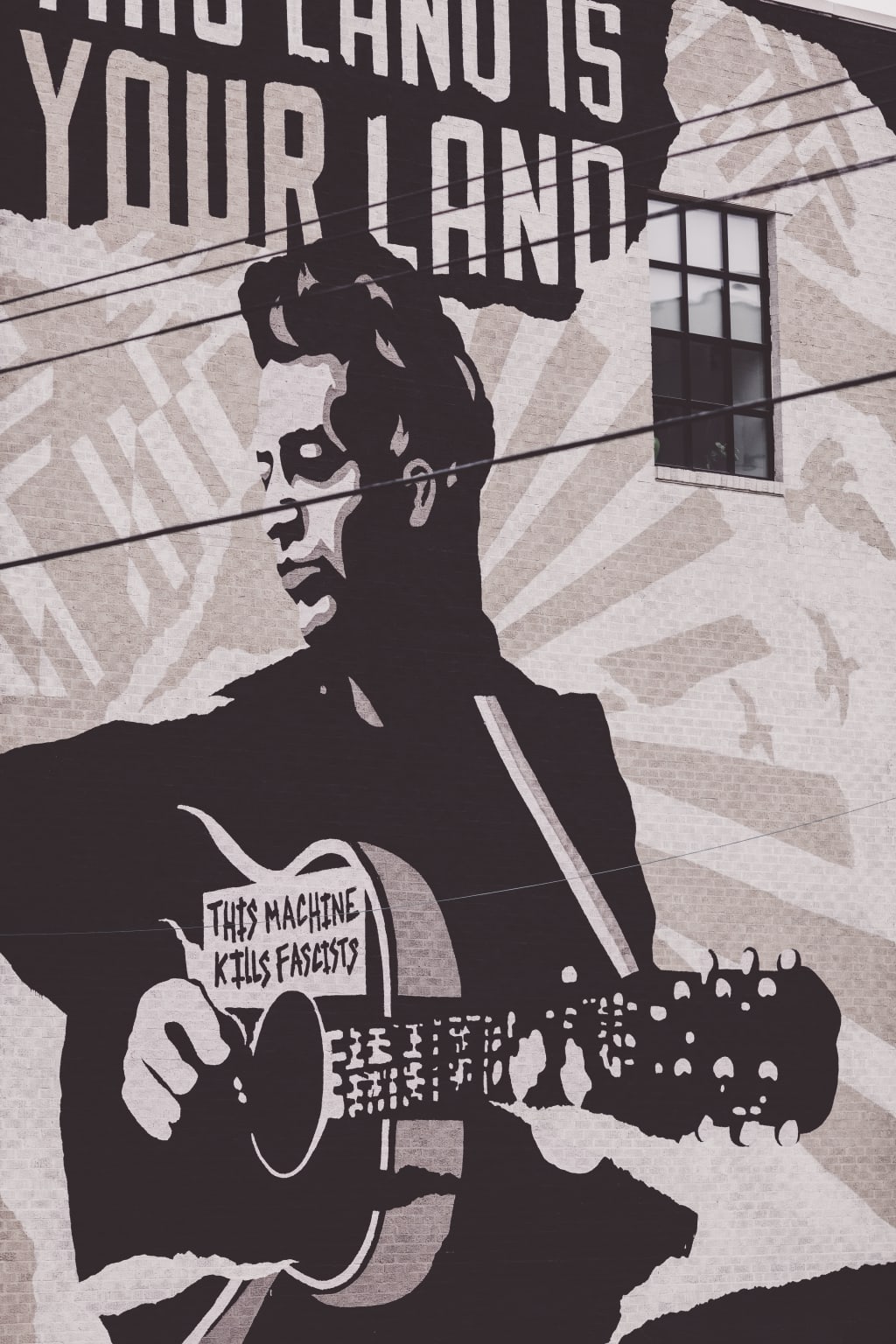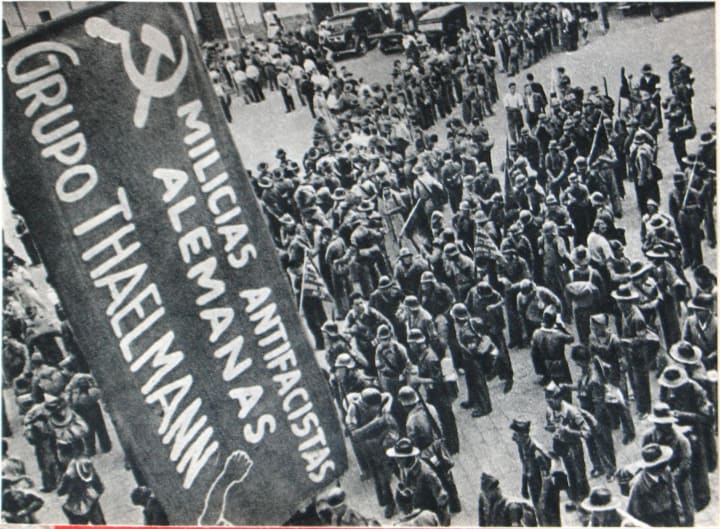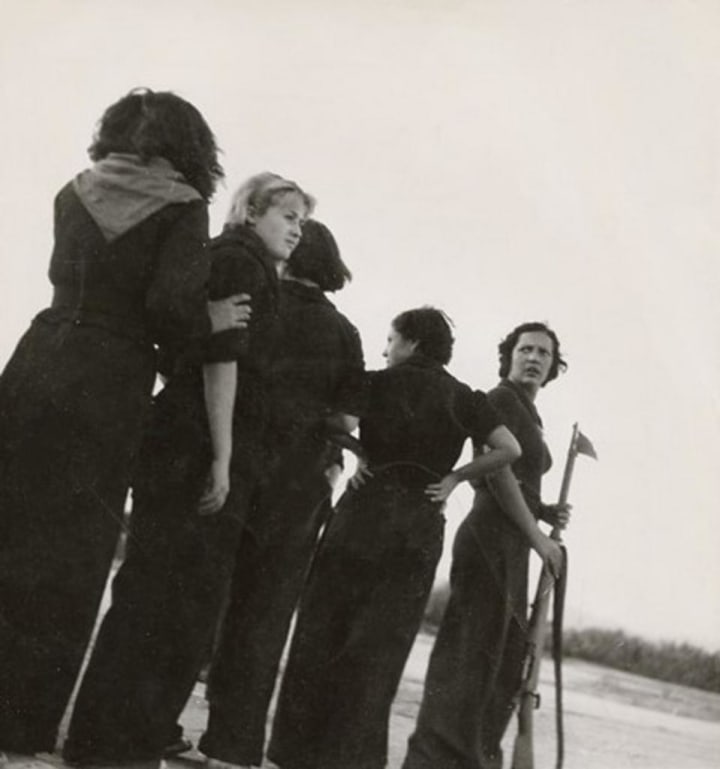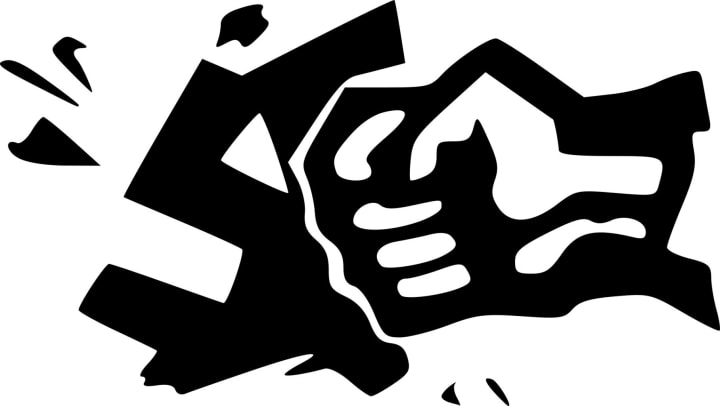
After the experience of Stalin acquiescing to Franco and Hitler, George Orwell no longer believed that a working-class revolution was possible, but he had once risked his life for revolution.
George Orwell took a bullet in the throat on May 20, 1937, fighting as part of the P.O.U.M. (a Marxist worker’s militia) against the Spanish fascist, Franco.
He had volunteered and gone to Spain in December of 1936, five months after the fascist coup against the Spanish Republic.
“Socialism means a classless society, or it means nothing at all. And it was here that those few months in the militia were valuable to me. For the Spanish militias, while they lasted, were a sort of microcosm of a classless society. In that community where no one was on the make, where there was a shortage of everything but no privilege and no bootlicking, one got, perhaps, a crude forecast of what the opening stages of socialism might be like. And, after all, instead of disillusioning me it deeply attracted me. The effect was to make my desire to see socialism established much more actual than it had been before.”~George Orwell
In school, in the United States, we are taught that Animal Farm and 1984 are screeds railing against the Soviet Union and it is implied to our young and tender minds that the author, George Orwell, hated communism.
The truth is that George Orwell believed in socialism enough that he took up arms to defend it.

“We are born, we are given just so much food as will keep the breath in our bodies, and those of us who are capable of it are forced to work to the last atom of our strength; and the very instant that our usefulness has come to an end we are slaughtered with hideous cruelty. No animal in England is free. Is this simply a part of the order of nature? Is it because this land of ours is so poor that it cannot afford a decent life to those who dwell upon it? No, comrades, a thousand times no!”~George Orwell, Animal Farm
The Spanish revolution that Orwell joined was not a cadre of wealthy nobles defending the glorious idea of democracy. No. The Spanish Revolution was composed of worker militias who had gone to police stations and army bases to retrieve the weapons stored there and the people themselves took up arms against General Franco.
Land was taken from wealthy landowners and worked collectively by the community and for the community.
Trade unions organized communal child care centers and kitchens.
Women enlisted in the militias.

“Practically every building of any size had been seized by the workers and was draped with red flags or with the red and black flag of the Anarchists… Every shop and cafe had an inscription saying that it had been collectivized; even the bootblacks had been collectivized and their boxes painted red and black…There were no private motor cars, they had all been commandeered, and the trams and taxis and much of the other transport were painted red and black. The revolutionary posters were everywhere, flaming from the walls in clean reds and blues…”~George Orwell, Homage to Catalonia
George Orwell was not opposed to socialism, he just believed that it was a constant truth of humanity that any revolution would inevitably be betrayed by selfishness and power hunger.
He was there when the Spanish revolution was betrayed.
The brave people of Spain put down their arms voluntarily when asked to by leaders that they trusted and as Franco took control of the entire country, those former revolutionary leaders were imprisoned or executed.
Stalin was trying to figure out a way to compromise with Nazi Germany and avoid war, so he bargained away the lives of the Spanish working class and instructed the communist party in that country to disarm and be at peace with Franco.
George Orwell did not hate communism, he hated Josef Stalin.
He hated how the Spanish revolution was betrayed.
He hated cowardice.
He hated sell-outs.
He hated lies.
He hated greed.
He hated tyranny.
And he hated capitalism.

“First I spent five years in an unsuitable profession (the Indian Imperial Police, in Burma), and then I underwent poverty and the sense of failure. This increased my natural hatred of authority and made me for the first time fully aware of the existence of the working classes, and the job in Burma had given me some understanding of the nature of imperialism: but these experiences were not enough to give me an accurate political orientation. Then came Hitler, the Spanish Civil War, etc…. The Spanish War and other events in 1936–37 turned the scale and thereafter I knew where I stood. Every line of serious work that I have written since 1936 has been written, directly or indirectly, against totalitarianism and for democratic socialism, as I understand it.”~George Orwell






Comments
There are no comments for this story
Be the first to respond and start the conversation.